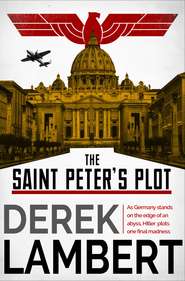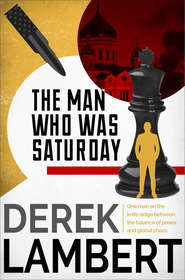По всем вопросам обращайтесь на: info@litportal.ru
(©) 2003-2024.
✖
The Yermakov Transfer
Автор
Год написания книги
2018
Настройки чтения
Размер шрифта
Высота строк
Поля
The Allies finally beat the Nazis and the Soviet attitude towards JAC began to cool: the Black Years of Stalin’s Jewish purges were beginning. On January 13, 1948, Solomon Mikhoels, director of the Moscow Yiddish State Theatre and one of the two emissaries who had spread the word to the world in 1943, was murdered in Minsk. He was a personality and he was emerging as the leader of Russian Jewry.
The murder was followed by the liquidation of the Committee. Lev Soliman’s parents were charged under Articles 58/10, part 2, to ten years in strict regime camps on charges of “belonging to a Jewish nationalist organisation and spreading nationalist propaganda”. Lev was looked after by the state.
When Kruschev came to power the Solimans were pardoned and the family was reunited in Moscow. Lev continued his education, winning a place at Moscow University.
But JAC had left its scars on him. He despised naïveté, he trusted no one. Organised protest served a function, but to Lev, it had a whine about it, a recognition of Soviet supremacy. Caution, caution. Lev Soliman spat on caution.
He gathered around him half a dozen young fanatics who believed that violence was the only honourable solution. Like other extremists throughout the world they didn’t necessarily represent the beliefs of those they fought for. But this didn’t bother them; they regarded the patient resolve of Soviet Zionists as weakness and they operated clandestinely treating both orthodox Zionists and Russians as the enemy.
This was the nucleus of subversion to which Lev Soliman introduced Viktor Pavlov. The nucleus of which Pavlov was soon to become leader.
* * *
In the autumn of 1962 Pavlov began to construct his cover. He already possessed Soviet nationality but he had to establish impeccable references. The secret police knew about his father; therefore they knew there was at least a strain of Jewish blood in him. So, with the approval of the K.G.B., he worked with the Jewish underground movement publishing samizdat newspapers, smuggling subversive literature out of the country – and informing on his colleagues.
Within a year he was an established agent provocateur in the student movement. He won a brilliant degree in mathematics and went to Leningrad to study computers to make himself invaluable to a country backward in such refinements.
There he met a girl who, at the age of eighteen, had been made a Heroine of the Soviet Union. Viktor Pavlov welcomed her as the means to make his cover unassailable.
Anna Petrovna was the spirit of Russia, the rose of Siberia. Her bravery was the inspiration for a legion of Komsomols to head east, to built cities in the frost, to tap the hostile territories of their wealth.
As a student geologist, Anna Petrovna had flown to Arctic Siberia in an eight-seater AN-2 with two young men. To her, the snow-covered taiga of the north, inhabited by reindeer and primitive tribesmen was a storehouse of precious stones – emeralds, amethysts, topaz, jasper, sapphires, garnets. But it was diamonds that fascinated her.
With a magnifying glass in one hand, she crawled beside a frozen river for two months, averaging a mile a day, searching for kimberlite, the blue-grey earth that advertises the presence of diamonds.
After the first month she couldn’t stand up straight. Towards the end of the second, when the wilderness was briefly thawing and she was paddling on raw knees in slush, she was on the point of giving up. One day she reached a spine of hills and gazed down on a plain patched with snow beneath a mauve haze. Idly, she stooped and picked up a handful of mud, straightening up painfully. The mud was blue-grey.
For a week she and the two young men dug. One bright morning they gazed down the shaft and saw a shiny blue light at the bottom. It was the first diamond chimney in the area and they called it “Blue Flash”.
Anna Petrovna and Viktor Pavlov met one evening at the White Nights club in Leningrad and fell in love; she unreservedly, he deeply and passionately but with a sliver of calculation in his soul, the chip of ice that never melted.
The marriage was popular. Such a fusion of talent; such a union of Russian beauty – he with his strong brown face and cap of glossy black hair, she the Siberian with her cool, glittering good looks – the sort of face that beckons from Aeroflot brochures. The wedding was honoured with a photograph in Komsomolskaya Pravda and a story that speculated on the handsome geniuses the couple would produce.
* * *
They spent their honeymoon in Siberia beside Lake Baikal – the Holy Sea, the Northern Sea, the Rich Sea. So right for their union with all its bizarre superlatives. Here Genghis Khan once camped in the heart of the territory of Marco Polo, Strogonoff, Yermak, Godunov, Kuchum. The deepest lake in the world, 400 miles long and 50 miles wide in places, filled by 336 rivers and emptied by only one, the Angara. Populated by fresh-water seals, omul and bright green sponges with which peasants clean their pots. Covered in winter by nine-foot deep ice which splits with a crack like thunder, tormented by storms and earthquakes which once, long ago, broke up the Gypsy Steppe on the eastern shore killing 1,300 people in the fissures, geysers and flood waters.
But today the waters were becalmed with floating islands of blossom like reflections of clouds and the only awesome sight was a ruff of white mountains in the distance.
They gazed upon it all from a rumpled bed in a guest house at Listvyanka. He very dark and hirsute beside her white body.
“Viktor Pavlov,” she said, “I love you. I’ll always love you.
“And I love you, Anna Petrovna, Heroine of the Soviet Union.”
“Does that bother you?” She stroked his chest, his flat belly, his sex.
“No, why should it?”
“It’s bothered other men.…”
“To hell with other men.”
“It upset them that I was made a heroine. That I crawled on my hands and knees for two months like some crazy cleaning woman.”
“It doesn’t bother me. They must have been very weak men.”
“They were. Stupid men. You’re the strongest man I’ve ever known. I felt your strength the first time we met.” She kissed him. “Like some inner force. Like a secret.”
“We all have secrets,” he said. “You do – your lovers, your deepest thoughts. Even what you’re thinking when you look out there.” He pointed at a bed of pink blossom drifting past the window. “We even keep secrets from ourselves.”
She shook her head so that her soft fair hair fell across her face. “I haven’t any secrets. Just the silly ambitions of any girl. A few meaningless men before the right one, the only one.” She pressed herself against him. “What’s your secret, Viktor Pavlov?”
He didn’t answer.
She held his arms down on the bed, staring at him with her blue eyes in which he could see sunlight and snow. “You frightened me a little.”
“I can’t imagine you being frightened of anyone.”
“Promise me you’ll always be faithful?” She thought about it. “Even when you go with other women – you’ll be faithful?”
“I’ll always be faithful,” he lied.
“And there will be other women?”
“No other women,” he told her, because that wasn’t the nature of his infidelity. I shall betray everything you cherish, he thought. He pressed his face against her firm white breasts.
“I’m glad,” she said, stroking his hair. “I was trying to be sophisticated. Men going with women and staying faithful to their wives. I wouldn’t like that.”
“Only you,” he said.
“We’ll go well together, you and I. We love the same things.”
“Ah yes,” he said. “The same things.” Thinking that in a way it was true.
“Viktor?”
“Yes?”
“I’m right, aren’t I?”
He kissed her, fondling her breasts, and, when he was hard again, made love with desperation.
When they were finished he glanced out of the window and saw a fishing boat drifting by, a breeze catching its sail. There was an illusory permanency about that moment and he always remembered it.
* * *
From 1962–67 Viktor Pavlov consolidated his position. He worked hard and became Russia’s leading authority on computers. He was given an apartment on Kutuzovsky Prospect in Moscow fit for a hero and heroine.
Другие электронные книги автора Derek Lambert
The Red Dove




 3.67
3.67
Vendetta




 0
0











